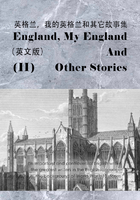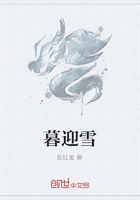The first Turkish troops came beneath the walls of the fortress on June 18. They spent the day pitching camp. By evening the entire army had still not arrived. New units kept on coming in. A thick layer of dust lay on men, shields, flags and drums, horses and wagons, and on the camels laden with bronze and heavy equipment. As soon as each marching group came on to the plain that lay before the garrison, officers from a special battalion would allocate a specific camping site, and the weary soldiers, under orders from their leaders, would busy themselves with setting up the tents before collapsing inside them, half-dead from fatigue.
Ugurlu Tursun Pasha, the commander-in-chief, stood alone outside his pink pavilion. He was watching the sun set. The huge camp throbbed with the noise of horseshoes and a thousand voices, and with its long lines of tents, it looked to him like a giant octopus which would stretch out one tentacle after another and slowly but surely encircle and suffocate the castle. The nearest tents were less than a hundred paces from the ramparts, the furthest were beyond the horizon. The Pasha's lieutenants had insisted his pavilion be placed at least a thousand paces from the castle walls. But he had refused to be so far away. Some years earlier, when he had been still a young man and of less elevated rank, he had often slept less than fifty paces from the ramparts, almost at the foot of the besieged citadel. Later on, however, in successive wars and sieges, as he rose in rank, the colour of his tent and its distance from the walls had changed in tandem. It was now pitched at a distance slightly more than half of what his lieutenants recommended, that is, at six hundred paces. That was a lot less than a thousand, all the same.
The Pasha sighed. He often did that when he took up quarters before a fortress that had to be taken. It was a reflex prompted by the first impression, always the deepest, before he became accustomed to the situation - it was rather like getting used to a woman. Each of his apprehensions began the same way, and they always also ended with another sigh, a sigh of relief, when he cast his last glance at a vanquished fortress, waiting, like a small and dusky widow, for the order for restoration, or for final demolition.
On this occasion, the citadel that soared up before him looked particularly gloomy, like most of the fortresses of the Christians. There was something odd, or even sinister, in the shape and layout of its towers. He had had that same impression two months earlier, when the surveyors responsible for planning the campaign had brought him drawings of the structure. He had spread out the charts on his knees many times, for hours on end, after dinner, when everyone else in his great house at Bursa was sleeping. He knew every detail of the lay-out by heart, and yet, now that he was at last seeing it with his own eyes, it aroused in him a sense of foreboding.
He glanced up at the cross on the top of the citadel's church. Then at the fearsome banner, the two-headed black eagle whose outline he could barely make out. The vertical drop beneath the East Tower, the wasteland around the gallows, the crenellated keep, all these other sights gradually grew dark. He raised his eyes to take another look at the cross, which seemed to him to give off an eerie glow.
The moon had not yet risen. It struck him as rather odd that the Christians, having seen Islam take possession of the moon, had not promptly made their own emblem the sun, but had taken instead a mere instrument of torture, the cross. Apparently they weren't as clever as people claimed. But they had been even less bright in times when they believed in several gods.
The sky was now black. If everything was decided up on high, why did Allah put them through so many trials, why did he allow them to spill so much blood? To one camp He had given ramparts and iron doors to defend itself, and to the other, ladders and ropes to try to overcome them, and He was content just to be a spectator of the ensuing butchery.
But the Pasha didn't rebel against fate and he turned around to look at his own camp. The plain was gradually being drowned in darkness and the myriad white tents appeared to hover above the ground like a bank of fog. He could see the different corps of the army laid out according to the plan that had been agreed. From where he was standing, he could see the snow-white flags of the janissaries, and the copper cauldron they hung on top of a tall pole. The raiders, or akinxhis, were taking their horses to drink in the nearby stream. Further on lay the endless tents of the azabs, as the infantry units were called; beyond them were the tents of the eshkinxhis, the cavalry recruited for this campaign; then, further on still, the tents of the swordsmen known as dalkili?, then the quarters of the serden ge?ti, the soldiers of death, then the müslüman or Muslim troops, and the prettier abodes of the sipahi, the regular cavalry. Spread out behind them were the Kurdish units, then the Persians, the Tartars, the Caucasians and the Kalmyks, and, even further off, where the commander's eye could no longer make out any clear shapes, there must have been the motley horde of the irregular volunteers, the exact number of whom was known to no man. Everything was gradually falling into order. A large part of the army was already sleeping. The only noise to be heard was the sound of quartermasters unloading supplies from the camel trains. Crates of bronze pieces, cauldrons, innumerable sacks bursting with victuals, gourds of oil and honey, fat cartons full of all kinds of equipment, iron bars, stakes, forks, hempen ropes with hooks on their ends, clubs, whetstones, bags of sulphur, and a whole array of metal tools he could not even name - all now came to rest in growing piles on the ground.
At the moment the army was swathed in darkness but at the crack of dawn it would shimmer like a Persian carpet as it spread itself out in all directions. Plumes, tents, manes, white and blue flags, and crescents - hundreds and hundreds of brass, silver, and silk crescents - would burst into flower. The pageant of colour would make the citadel look even blacker beneath its symbolic instrument of torture, the cross. He had come to the end of the earth to topple that sign.
In the deepening silence the sound of the azabs at work on the ditches became more noticeable. He was well aware that many of his officers were cursing through their teeth and hoping that as he was himself half-dead from fatigue he would give the order to halt work on the drains. He clenched his jaw just as he had when he had first spoken about latrines at a meeting of the high command. An army, he said, before it was a marching horde, or a swathe of flags, or blood to be spilled, or a victory or a defeat - an army was in the first place an ocean of piss. They had listened to him open-mouthed as he explained that in many cases an army may begin to fail not on the field of battle, but in mundane details of unsuspected importance, details no one thought about, like stench and filth, for instance.
In his mind's eye he saw the drains moving ever closer to the river, which would wake in the morning looking dull and yellow…In fact, that was how war really began, and not as the hanums in the capital - the ladies of high society - imagined it.
He almost laughed at the thought of those fine ladies, but oddly, a sense of nostalgia stopped him. It was the first time he'd noticed himself having feelings of that kind. He shook his head as if to make fun of his own plight. Yes, he really did miss the hanums of Bursa, but that was only part of it. What he missed was his distant homeland, Anatolia. He had often thought of its peaceful, lazy plains during the long march through the Balkans. He had thought of it most of all when his army had entered the land of the Shqipetars and first seen its fearsome peaks. One morning before noon, when he was drowsing on horseback, he had heard the cry from all around: "daglar, daglar", but said in a special way, as if expressing fear. His officers raised their heads and looked to the left, then to the right, as if they were trying to get a better view. He too gazed at the mountains at length. He'd never seen any like them before. They reminded him of ghastly nightmares unrelieved by waking up. The ground and the rocks seemed to be scrambling madly towards the sky in mockery of the laws of nature. Allah must have been very angry when he created this land, he thought, and for the hundredth time since the start of the campaign he wondered if his leadership of the army had been won for him by his friends, or by his enemies.
In the course of the journey he had noticed that the mere sight of these mountains could make his officers agitated. They spoke more and more often of the plain they hoped to see before them as soon as possible. The army moved slowly, for now it hauled not only its arms and supplies, but also the heavy shadow of the Albanian mountains. The worst of it was that there was nothing he could do to be rid of it. His only resource was to summon the campaign chronicler and to ask him how he was going to describe the mountainous terrain. Trembling with fear, the chronicler had said that in order to portray the Albanian landscape he had assembled a series of terrifying epithets. But they hadn't met with the Pasha's approval, and he ordered the scribbler to think again. Next morning, the historian appeared before him, his eyes bloodshot from the sleepless night he had spent, and read him out his new description. High mountains, he declaimed, that reached even higher than crows can fly; the devil himself could barely climb up them, the demon would rip his sandals on their rocks, and even hens had to have their claws shod with iron to scale them.
The Pasha had found these images pleasing. The march was now over, night had fallen, and he tried to recall the phrases used, but he was tired and his weary mind could think of nothing but rest. It had been the longest and most exhausting expedition of his soldiering life. The ancient road, which was impassable in several places and which his engineers had repaired as fast as they could, bore the strange name of Egnatia. It went back to Roman times, but seemed to go on for ever. Sometimes, in the narrow gorges, his troops had stayed stuck until sappers cut a detour. Then the road became passable once more, and his army resumed its slow and dusty advance, as it had on the first, third, fifth and eighth day prior. Even now, when it was all over, that thick and unpleasant layer of grey dust still hung over his memory.
He heard horses neigh behind him. The closed carriage which had brought four women from his harem was still there, parked beside his tent.
Before leaving he had wondered several times whether he should bring his wives with him. Some of his friends had advised against it. It was a well-known fact, they said, that women bring ill fortune to a military campaign. Others took the opposite view and said that he should take them with him if he wanted to feel calm and relaxed and to sleep well (insofar as anyone can sleep well during war). Usually pashas did not take women with them in similar circumstances. But this expedition aimed to reach a very distant land; in addition, according to all forecasts, the siege was likely to last a long time. But those weren't the real reasons, because on all campaigns, however far-flung or long-drawn-out they might be, captives were always taken, and women won at the cost of soldiers' blood were indisputably more alluring than any member of a harem. However, friends had warned him that where he was going it would be difficult to take any female prisoners. The girls there were certainly very beautiful, but in the words of a poet who had accompanied an earlier raid into those lands, they were also as enticing and, alas! as unattainable as a dream. To escape from pursuit they would often throw themselves off a cliff. That's just poetic licence, some said, but the Pasha's closest friends shook their heads to say it was no such thing. In the end, as he was taking his leave, the Grand Vizier had noticed the small carriage with barred windows, and asked him why he was taking women to a land famed for the beauty of its own. Avoiding the Vizier's sly glance, he replied that he didn't want to have any share in the prisoners his valiant soldiers would take by their own efforts and blood.
During the march he hadn't had a thought for his wives. They must now surely be asleep in their lilac-coloured tent, worn out by the length of the journey.
Before feeling them on his own skin, he heard the raindrops falling on the tent. Then, after a short while, from somewhere inside the camp there rose the familiar sound of the rain drum. Its ominous roll, so different from the banging of heavy crates or the blare of the trumpets of war, summoned up the image of his soldiers who, despite their exhaustion, had to haul out the heavy tarpaulins to cover up the equipment, cursing at the weather as they laboured. He had heard it said that no foreign army except the Mongols had a special unit, as theirs did, whose job was to announce the coming of rain. Everything that's any use in the art of war, he said to himself, comes from the Mongols. Then he went inside his tent.
Orderlies had set up the Pasha's bed, placed the divans around it, and were now laying carpets on the floor. A strip of cloth embroidered with verses from the Koran had been hung at the entrance. Hooks had been hung in the customary manner from the top of the main pole so he could stow his scabbard and his cape. Contrary to what he had always expected, the more he rose in rank, the more gloomy his tent became.
He sat down on one of the divans and put his head between his hands as he waited for his chef-de-camp to finish his report. Almost all troops had now arrived, they had been allocated their proper camping places, guards, sentries and scouts had been posted all around - in sum, everything necessary had been done and was in order. The commander-in-chief could sleep peacefully.
The Pasha listened without interrupting. He didn't even take his head out of his hands, so that the chef-de-camp couldn't see his eyes, but only the ruby on his commander's middle finger. It was a ruby of the kind that because of its hue is called a bloodstone.
When his subaltern had left, Tursun Pasha stood up and went out once again. The rain was lighter than he had thought it was from the noise it made inside the tent. His ears were still ringing with the chef-de-camp's litany of guards, sentries and scouts, but instead of calming him down, it had made him even more agitated. Night always bears a litter, he thought. He had heard the saying somewhere or other in his youth, but only when he was much older had he discovered that it did not refer to the consequences of love or lust, but to nasty surprises.
The night was pregnant and he was in its belly, all alone. He could see a faint glow leaking out of tents to the right of his own. Others were still awake, as he was. Maybe they were quartermasters, or exorcists or sorcerers warding off evil spirits. Normally, the astrologer, the chronicler, the spell-caster, the exorcists and the dream-interpreters had tents set next to each other. All of them knew more than he did about what lay in store, that was certain. Nevertheless, he did not trust them entirely.
The patter of raindrops was getting louder. The Pasha felt he was quite close to the sky and separated from it only by the feeble crown of his tent. A strange nostalgia overcame him as he thought of his bedroom at home, in his palace, where you could barely hear the sound of bad weather. He was usually more prone to longing for war. At home, lying in a room soundproofed by carpets, he would think eagerly of his campaign tent with the wind howling around it…Had he not now reached the age when he should don his slippers and retire to his peaceful Anatolian home? Should he not let go before the fall?
He knew it was not a practicable proposition. He was still young, but that was not the main reason. He had attained a rank where it was impossible to stand still. He was condemned either to rise even higher, or else to fall. The Empire was growing by the day. Whoever could prove himself the most energetic and courageous could have it all. Thousands of ambitious men were clawing their way like wild beasts towards wealth and fame. They were shoving others aside, often by intelligent manoeuvring, but even more often by plot and by poison.
He had recently felt the ground shifting under his own feet. There was no obvious cause for that uncertain sensation, which made it all the less easy to deal with. Like one of those mysterious diseases no one knows how to cure.
He had used all the means at his disposal to find out which hidden circles were plotting against him. A waste of time. He had not uncovered anything at all. His friends had begun to look at him pityingly. Especially after receiving his latest gift from the Sultan - a collection of armour. Everybody knew it was a bad omen. People were expecting him to fall, when, all of a sudden, news went round that he had been appointed commander of a huge expedition due to set off in short order against the Albanians. People said he must have still had some friends in high places, even if he had enemies aplenty. At the same time, however, it was clear that by sending him off to fight Skanderbeg, the Sultan was giving him one last chance.
It wasn't the first time the Padishah had acted in that way. He always appointed men who were playing their last card to head the most hazardous expeditions, well aware that the fiercest of warriors are those with their backs to the wall.
The Pasha rose and began to pace up and down on the plush carpet of his tent. Then he sat down again and took a thick swatch of papers and cardboard from a large leather satchel. Among the documents was the map of the fortress. The Pasha put it on his lap and pored over it. It contained very full details of the location and especially the height of the ramparts and the towers, the slope of the ground on every side, the specifications of the main door and of the secondary entrance to the south-west, the gully on the west side, and the river. The draftsman had put question marks in red ink in three or four places to mark the probable locations where the aqueduct entered and left the fortress. The Pasha stared fixedly at these marks.
One of his orderlies brought him his dinner on a tray, but he didn't touch it. His fingers ran through his worry-beads but the faint noise they made did no more than the patter of raindrops to dissipate the feeling of emptiness inside him.
He clapped his hands, and a eunuch appeared at the tent door.
"Bring me Exher," he said without even looking at the man.
The eunuch bowed to the ground but stayed where he was. He seemed to have something to say, but was too scared to open his mouth.
"What is it?" the Pasha asked, seeing the man was still there.
The eunuch mouthed something but made no sound.
"Is she ill?" the Pasha asked.
"No, Pasha, but you know that the hammam…and perhaps she…"
The Pasha motioned him to keep quiet. He looked at his beads once again. The night was going to be as long as a winter night.
"Bring her to me all the same," he blurted out.
The eunuch bowed again and then vanished like a shadow.
He came back a few moments later holding a young woman by the hand. Her hair had been done up in haste and she looked as if she was still asleep. She was the youngest of the women in his harem. Nobody knew her age, and nor did she. She couldn't have been more than sixteen.
The Pasha motioned to her. She sat on the bed. She did not arouse him one bit, but he lay down beside her nonetheless. She apologised for not having been able to perform her ablutions that night, for reasons beyond her control. The Pasha grasped that the sentence had been put in her mouth by the eunuch. He didn't answer. As he smelled the familiar perfume of the girl, which for the first time was blended with the smell of dust, it occurred to him briefly that maybe he should not lay his hand on a woman on the night before a battle, but the thought left his mind as casually as it had come into it.
He gazed at her pubis and was almost surprised by the vigorous tuft that the eunuch had not had time to shave, as he usually did. With this shadow over her sexual organ, the girl looked slightly foreign, and all the more desirable for it. He often told himself that he should abstain from making love when an affair of State was on his mind, but swung just as often to the opposite view, that it would help him cope. On this night, he overcame his hesitation.
He opened her legs with a gentle touch and, contrary to habit, as if he were afraid of bruising his young wife, he penetrated her with similar tenderness. The unusual consideration he showed did not surprise him; he guessed vaguely that it was connected to the long journey the girl had put up with alongside his soldiers, which made her almost part of his army.
He moved clumsily, as if his desire lay outside of his body, and it was only when he felt his seed spurt from him into the girl's warm belly that he livened up. His pleasure was brief but intense and sharp, as if it were all concentrated in itself, like the trunk of a tree with no branches.
The girl realised he had made love without desire. As she ascribed his coldness to the black tufts of her pubic hair rather than to her not having been bathed beforehand, she apologised once again. He didn't respond. He propped himself on his elbow, leaned back on the cushions, and started counting out his beads again. With a blush in her cheeks and her head on the pillow, she marvelled at the harsh and rough-hewn face of the man to whom she belonged.
He forgot all about her. He reached over to the pile of documents and extracted the map of the fortress from it. He drew two signs on it, and then a third, in black ink. The girl raised herself on an elbow and with her beautiful eyes cast a quizzical glance at the paper and its multitude of strange marks. Her master's cold, grey eyes did not budge from it. She made a small movement, as carefully as she could, so as not to disturb him. However, when she shifted her elbow, which was going numb, the bed moved, and one of its heavy pendants almost fell on to the sketch. She held her breath - but he hadn't noticed a thing. He was completely absorbed by the map.
She looked alternately at the Pasha's face and at the marks he was making on the map. She was extremely curious, and just as bold, for she asked:
"Is that what war is, then?"
He looked up and stared at her, as if surprised to see her lying there, then turned away and went back to poring over the map.
He carried on marking up the map for a long time. When he turned around, she had fallen asleep. She was breathing deeply, with her lips half-parted. She looked even younger than her years.
Rain was still falling and drumming on the tent.
As the Pasha gazed at the eyelashes and pale long neck of his fourth wife, his mind went back - who knows why? - to the latrines that had been constructed at top speed. The first ditch would now be creeping up to the river, like a water-snake…He lifted the blanket and, against his normal practice, took a look at his partner's delta, with its lips still wet. He thought he might have impregnated her. In nine months' time, she might give him a son…Approaching sleep made his mind wander to the matériel that should by now be under the tarpaulins, to the sentries, tomorrow's meeting of the war council, and back again to that woman's belly where his son may just have been engendered. When he grew up, would he ever imagine he had been conceived in a campaign tent, in the pouring rain, at the foot of a sinister citadel, far beyond the setting sun…? Maybe he too would become a soldier, and as he rose in rank, maybe his tent too would move two hundred, six hundred, twelve hundred paces from the ramparts…"Allah! Why hast Thou made us thus?" he sighed as his head nodded, as if over a bottomless pit.
Their white tents have surrounded our citadel in the shape of an immense crown. At dawn on the morning after their arrival, the plain looked as if it were covered by a thick layer of snow. You could see no ground, no grass, no rocks. We climbed up to the battlements to get a view of this wintry scene. That was when we realised what a huge conflict our Castrioti had entered into with Murad Han, the most powerful prince of the age.
Their camp stretches out as far as the eye can see. The ground has vanished from sight and our hearts sink. We are now alone with only the clouds for company, as it were, while at our feet, like some nightmare vision, a myriad tents are forging a new landscape, a nowhere world, so to speak.
From here you can see the pink pavilion of the commander-in-chief. The day before yesterday he sent a delegation to seek our surrender. They stated their conditions quite clearly: they would not touch any of us, they would let us leave the citadel with our arms and chattels, and we could go wherever we chose. In return all they wanted were the keys to the castle so they could take down the black bird-flag (which is what they call our eagle) from the tower where it flies, for in their view it offends the firmament. In its place they want to raise the true son of the heavenly world, the crescent.
That is what they have been doing everywhere in recent times: they pretend to be pursuing a symbol when their real aim is conquest. They kept the issue of religion to the end, since they were sure it would be their winning bid. Their chief pointed to the bell-tower and said that as far as the instrument of torture was concerned (that is what they call the Holy Cross), we could, if we wished, hang on to it, and also, obviously, keep our Christian faith. You'll renounce it yourselves in due course, he added, because no nation could possibly prefer martyrdom to the peace of Islam.
Our answer was short and firm: neither the eagle nor the cross would ever be removed from our firmament; they were the symbols and the fate we had elected, and we would remain faithful to them. And so that each of us may keep his own symbols and fate according to the dispositions of the Lord, they had no alternative but to leave.
They did not wait for the interpreter to translate our last words before rising hurriedly to their feet in fury. They called us blind, said they had parleyed enough already, and that it was now time for arms to speak. Then they hastened towards the rear gate, taking a path through the centre of the courtyard so as to show off their magnificent costumes.















